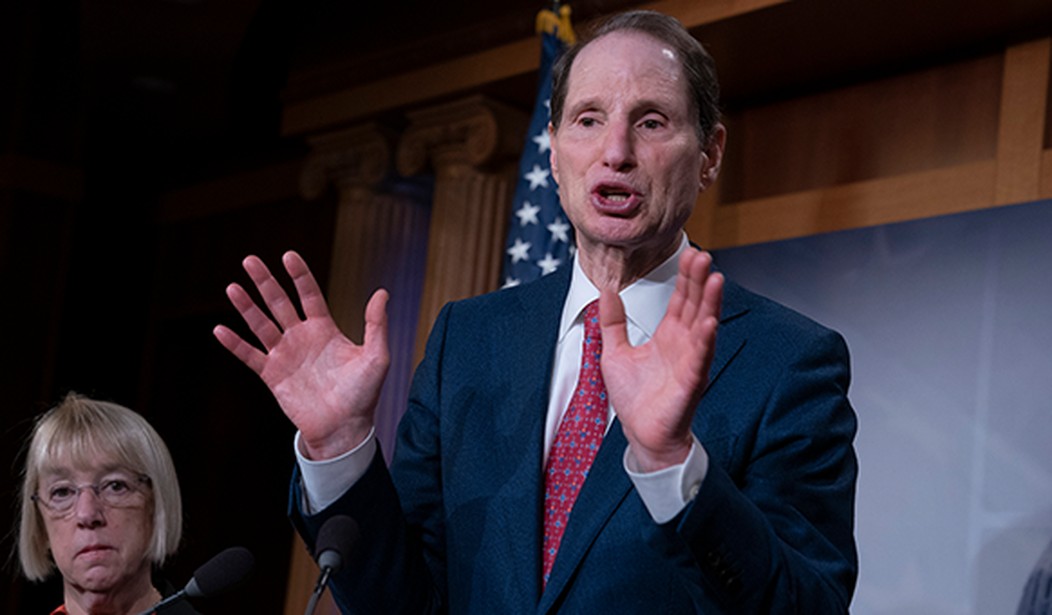Like cockroaches, the same bad ideas keep emerging from the Biden administration and its Democrat friends in Congress.
We’ve created a crisis at the border by undoing the effective policies of the previous administration.
We’ve driven up gas prices $1 a gallon – the ultimate regressive tax – by reverting to the petty and unwise policies of the Obama administration, which were designed to curb energy exploration. Now we’re back to demanding trillions to fight global warming despite the manifold and manifest failures of warmist climate modeling.
Another bad idea that has returned to the stage is Democrats’ attempt to insert big government into Part D, the Medicare prescription drug benefit that was created in the mid-2000s as part of the Medicare Modernization Act.
This was tough legislation to get across the finish line. Rep. Tom DeLay (R-TX), then the majority leader of the House, kept the vote open into the wee hours of the morning to get it through.
A key provision – one that lured many of those House Republicans to approve a significant expansion of government-provided healthcare – was the non-interference clause, which prohibited government from taking part in the private negotiations between Medicare Part D plans, drug manufacturers and pharmacies or from requiring a national formulary.
Democrats, who have long sought to overturn this provision because they believe government-imposed pricing would reduce costs but not harm availability, are at it again. Last month, Senate Finance Committee Chairman Ron Wyden, (D-OR) released a 5-point plan to lower prescription costs, and eliminating the non-interference clause was high on the list.
Recommended
The perception is that government brings tremendous negotiating power that will bring Big Pharma to its pricing knees and that otherwise private interests will collude among themselves to gouge the taxpayers.
The truth is keeping the government out of the negotiating room saves money and puts patients first by giving them more access to more drugs sooner than anyone in the world. Nearly 60 percent of all drug patents are awarded to American firms. Putting big government at the negotiating table threatens that advantage.
First, government would not be the biggest player at the table in drug negotiations. According to the Heritage Foundation, it would be third or fourth, depending on which other pharmacy benefit management firms participate, and the Congressional Budget Office has said repeatedly its participation would do little to nothing to reduce prices.
To make a difference, government would have to do more than enter as a co-negotiator; it would have to essentially take over the negotiations and set prices. Given its priorities -- whatever's cheapest over what works best – this would incentivize a race to the bottom over a search for effective and affordable cures.
Part D does not need this fix. It is the rare government program that has spent less than projected.
Rep. Henry Waxman (D-CA) tried to impose a $41 per month premium at the outset of the program; average premiums even to this day are only in the low-$30s -- and the Centers for Medicare and Medicaid Studies say almost all this savings has resulted from government not being involved in the drug price negotiations.
What it does need is to ensure the savings that come out of those agreements – privately negotiated rebates and discounts – are realized by the patients and the taxpayers, who foot 75 percent of the bill for Part D. And that out-of-pocket costs on top of the premiums be capped at levels manageable to seniors on limited budgets.
These measures would ensure a better deal for taxpayers and patients without compromising access to new treatments or disincentivizing the search for new drugs and therapies.
Proposals such as those put forth by Sen. Wyden ignore reality and represent another recurring feature of Democrat policymaking – a refusal to acknowledge the costs of the research and development that makes America the center of the drug-developing universe, and its biomedical industry is spending more than ever on research and development.
Drugs have long, expensive lead times, and those who invest in such enterprises prefer the United States because it can count on courts to enforce patent laws and provide the best chance at recouping these substantial costs.
Government involvement in the negotiations – which would quickly become government price-setting – would make it more difficult for the most effective drugs to come to market. Pharmacy benefit managers have incentives to hold down costs already, and theirs is properly leavened by the desire to satisfy customers. This is not how government-mandated ‘negotiations’ work.
If we learned anything from the pandemic it is that we better maintain a robust and active research community in drugs – one ready to respond to future challenges in a way that doesn’t cost us a year of our lives. Policies that threaten this, such as government price-setting for drugs, should not be considered.

























Join the conversation as a VIP Member